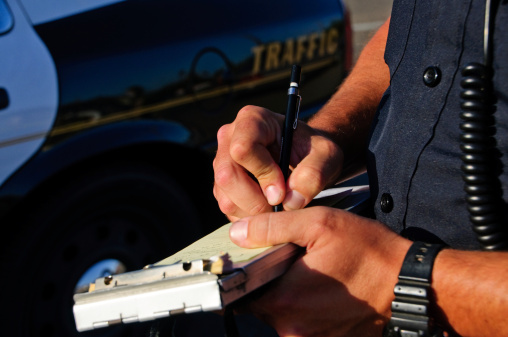

Does My Driving History Affect My Ability to Get an Auto Loan ?

At some point in our time on the road, we’re going to get into an accident. It’s just going to happen. Fender-benders, parking tickets, accidents, speeding, millions of Americans get dinged in parking lots and pulled over by the highway patrol every day. Most of us write it off as a modern inconvenience … but can it affect your ability to get an auto loan?
It’s quite possible. To understand why, we need to look at why your lender will look at your driving history in the first place.
Mostly, your driving history will be looked at as a matter of security. Until you pay off your car loan, technically your car is owned by the lender. If one of their borrowers gets a new car and promptly destroys it, the lender is likely going to be out at least some of their loan, depending on who’s at fault in the accident and whether or not their insurance is willing to pay for the car.
Secondly, while lenders have increasingly complex and accurate formulas for judging whether or not you’re a good financial risk, there’s still a bit of subjectivity to the process. The loan officer is still going to look at the data he or she has and make a judgement call about whether or not you’re a good risk for a loan. Seeing a bad driving history might lead them to decide you’re not worth the risk, or that they’d better tack a few interest points onto the loan’s rate just to be sure they get their money back. This might happen even if you’re not at fault.
And this isn’t even getting into an area that affects your finances just as much: Auto insurance. If you’re unable to secure insurance for your new car thanks to your driving record, then you might as well not even bother going onto the lot.

A lack of any sort of driving history will be a factor in securing your car loan as well. Many lenders will be concerned that you don’t have the skills to protect their investment in your transportation. It may also be a point of concern in that they don’t feel they have enough data to properly evaluate your loan; you might be asked for character references or other documentation in order to help the loan officer make the call one way or the other.
None of this means, however, that you won’t be able to find a lender willing to work with you, or that a bad driving history precludes getting an auto loan. Nor is it impossible to set the record straight; if you find that you’ve been wrongly held at fault, you can pursue some options to clean up your record.
That said, though, you will have to accept that lenders have to make a choice, and they might not make the one you want to hear. Consider it another incentive to drive safely and politely.






